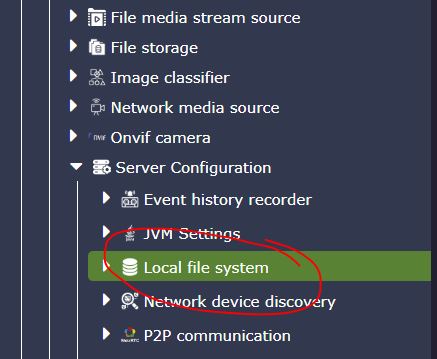Local File System
In today's digital age, managing and storing video content efficiently is paramount for businesses, organizations, and individuals alike. With the emergence of sophisticated video management software like Banalytics, users are empowered to handle their video assets with ease and effectiveness.
One of the standout features of Banalytics is its utilization of the local file system as a storage provider, offering a range of benefits and versatile integration options for users. The key benefits of leveraging the local file system are the following.
Accessibility and Speed
Utilizing the local file system ensures swift access to video files stored on the user's device or server. This accessibility translates to faster retrieval times, facilitating seamless playback and analysis of video content.
Control and Security
With the local file system, users retain full control over their video assets. They can implement customized security measures, such as encryption and access controls, to safeguard sensitive footage from unauthorized access or breaches.
Cost-Efficiency
Leveraging existing infrastructure, such as local storage devices or servers, eliminates the need for additional cloud-based subscriptions or storage services. This cost-effective approach enables users to optimize their resources without compromising on storage capacity or performance.


While it doesn't allow you to switch to another storage provider, the component in the Server Configuration options allows you to check the connection status and restart the component in case of failure.
Configuration Parameters
| Value | Required (Yes/No) | Description | Default |
|---|---|---|---|
| uuid | Yes | A unique, automatically generated identifier for this component instance. This value is not editable. | |
| Restart on failure | Yes | Restart mode upon catching an error:
|
Default to 10 sec |
